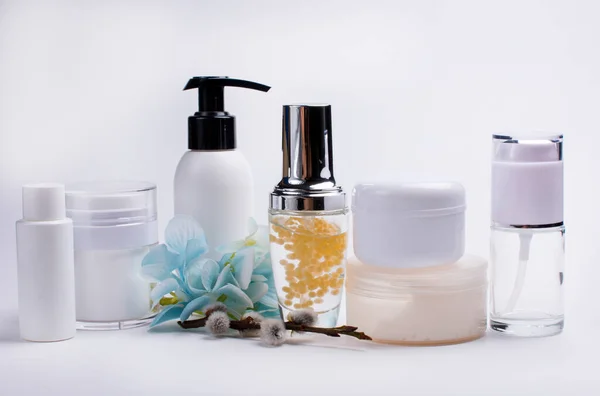In the dynamic world of skincare, Best Private Label Skin Care has emerged as an effective strategy for small businesses and emerging brands to establish their presence and compete with established names. If you’re a business owner or aspiring skincare entrepreneur, this comprehensive guide will delve into the ins and outs of private label skincare, helping you navigate the market and choose the best products for your brand.
What is Private Label Skincare?
Private label skincare involves partnering with a manufacturer to produce skincare products that are branded with your own name and logo, rather than the manufacturer’s. This approach allows you to offer high-quality products without the need for extensive research and development, making it an attractive option for businesses looking to enter or expand in the skincare market.
Benefits of Private Label Skincare
1. Cost-Efficiency
Starting from scratch can be costly, with expenses tied up in formulation, production, and compliance. Private labeling significantly reduces these costs, allowing you to invest more in marketing and brand building.
2. Speed to Market
With private labeling, you can launch your product much faster. Manufacturers typically have ready-to-market formulations, which means you can focus on branding and distribution.
3. Customization and Control
Private label products offer flexibility, allowing you to customize formulations, packaging, and branding to meet your target market’s needs and preferences.
4. High-Quality Standards
Reputable private label manufacturers adhere to strict quality standards and comply with industry regulations, ensuring that your products are safe and effective.
5. Brand Loyalty and Recognition
Offering unique, branded products helps establish brand identity and loyalty among customers, distinguishing your products from generic options on the market.
How to Select the Best Private Label Skincare Manufacturer
Choosing the right partner is critical to the success of your private label skincare line. Here are some key factors to consider:
1. Reputation and Experience
Look for manufacturers with a proven track record in the skincare industry. Check reviews, ask for references, and verify their credentials and experience.
2. Range of Products
Ensure the manufacturer offers a wide range of skincare products that align with your brand vision. This could include cleansers, moisturizers, serums, masks, and more.
3. Quality and Compliance
Verify that the manufacturer complies with industry regulations and maintains high-quality standards. Request samples to test the products and ensure they meet your expectations.
4. Customization Options
Assess the level of customization available. Can you adjust formulations, choose packaging designs, and create unique branding elements? Flexibility is crucial to differentiate your products.
5. Minimum Order Quantities (MOQs)
Understand the MOQs required by the manufacturer. For small businesses, a lower MOQ may be necessary to manage inventory and budget constraints effectively.
6. Pricing and Terms
Analyze the pricing structure and terms of agreement. Ensure transparency in costs related to production, packaging, and shipping. Negotiate terms that favor your business model.
7. Support and Collaboration
A good manufacturer should offer robust support, including assistance with formulation, packaging design, and marketing. Strong communication and collaboration are vital for a successful partnership.
Top Private Label Skincare Products to Consider
With countless options available, here are some top-performing skincare products that can attract and retain customers:
1. Anti-Aging Serums
Packed with active ingredients like hyaluronic acid, retinol, and peptides, anti-aging serums are a popular choice for consumers looking to reduce signs of aging and improve skin texture.
2. Moisturizers
Hydrating moisturizers catering to various skin types (e.g., oily, dry, sensitive) are essential. Look for formulations with natural ingredients like aloe vera, shea butter, and jojoba oil.
3. Cleansers
Gentle yet effective cleansers, including foaming face washes, micellar water, and exfoliating scrubs, are foundational products for any skincare line.
4. Face Masks
Face masks, including sheet masks, clay masks, and overnight masks, are trendy products that offer instant results and a luxurious experience.
5. Sunscreen
Broad-spectrum sunscreens that provide protection against UVA and UVB rays are crucial. Consider formulations that are lightweight, non-greasy, and suitable for daily use.
6. Eye Creams
Eye creams targeting dark circles, puffiness, and fine lines are always in demand. Look for potent ingredients like caffeine, vitamin C, and antioxidants.
Marketing Your Private Label Skincare Brand
Once you have chosen your products and manufacturer, the next step is to effectively market your brand. Here are some strategies to consider:
1. Build a Strong Brand Identity
Develop a cohesive brand identity that resonates with your target audience. This includes your brand name, logo, packaging design, and overall aesthetic.
2. Leverage Social Media
Utilize platforms like Instagram, Facebook, and TikTok to showcase your products, share customer testimonials, and engage with your audience through interactive content.
3. Collaborate with Influencers
Partner with influencers in the beauty and skincare space to amplify your reach. Influencers can provide authentic reviews and recommendations, driving traffic and sales.
4. Offer Promotions and Discounts
Attract customers with introductory offers, bundle deals, and seasonal discounts. Limited-time promotions can create urgency and encourage purchases.
5. Invest in SEO and Content Marketing
Optimize your website and product descriptions for search engines. Create valuable content such as blog posts, tutorials, and skincare guides to drive organic traffic and establish authority.
6. Foster Customer Relationships
Provide exceptional customer service and encourage feedback. Building a loyal customer base involves listening to their needs and continuously improving your products and services.
Conclusion
Entering the Private Label Skincare market presents an exciting opportunity for small business owners and emerging brands. By choosing the right manufacturer, selecting top-quality products, and implementing effective marketing strategies, you can carve out a niche in the competitive skincare industry.
Are you ready to build your skincare empire? Start your journey with confidence and make your mark in the world of beauty and wellness. For more insights and expert tips, stay tuned to our blog and join our community of ambitious entrepreneurs.




